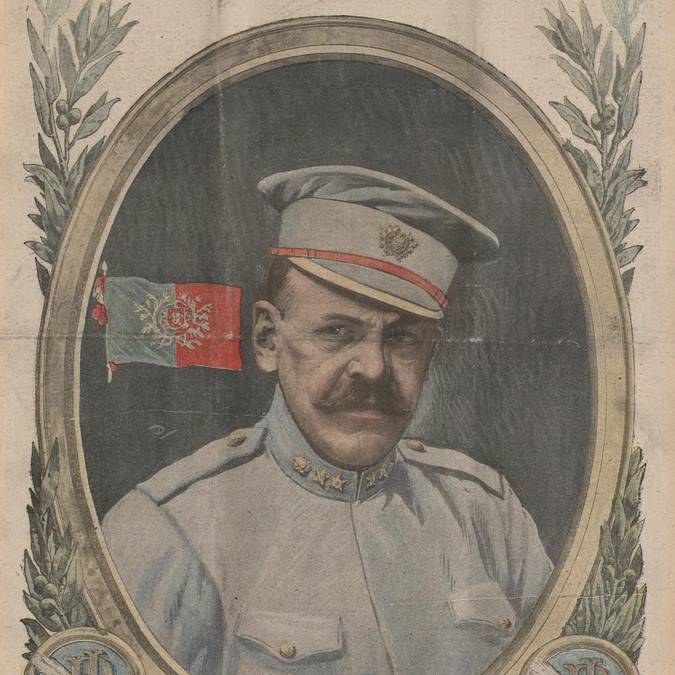Fernando Tamagnini de Abreu is the story of a forced withdrawal. The General commanding the Portuguese Expeditionary Corps (C.E.P) was a remarkable man with a spotless career. In May 1917, the Petit Journal described him: “General Tamagnini de Abreu is the Commander-in-Chief of the Portuguese forces fighting on our front. Tall and slender, although he is a little over sixty, he has kept the youthful look of a cavalry officer ”. His appointment, by the War Minister Norton de Mattos, was a flamboyant climax for one who was engaged as a private soldier on June 2, 1873 in the 2nd Cavalry Regiment. He was then 17 years old. In 1892, he was the Director of the School of Instruction, before joining the Headquarters staff in 1914. He was also Commander of the 5th Military Division and President of the Military Court.
Following his appointment, he first directed the Tancos Military Training Centre, where he made a significant contribution to the famous "Miracle". His men call him the “disciplinarian". The task was arduous: the Portuguese temperament of the troops made it a difficult army, where acts of rebellion, disobedience and disorganisation were legion. However, this cavalry officer faced this challenge. He was also more a soldier than a refined diplomat, an aspect which at the beginning of his appointment would be an asset but afterwards became the cause of his isolation. However, he completed negotiations with the British Army, which had begun to increase the Portuguese sector unreasonably.
It should also be noted that the unstable political climate of the very young Republic had important consequences for the involvement of the C.E.P. in Africa, on the Western Front and in Portuguese public opinion. Instability was such that governments changed on average every 6 months. Their position on the commitment of the C.E.P. fluctuated, to the point of abandoning the soldiers to their fate. The lack of government involvement had another detrimental effect on the C.E.P.: the British allies, reluctant about Portugal’s participation in the conflict, took the opportunity to lead negotiations and eliminated the ambitions of the C.E.P. to form an army corps and be integrated directly into the British Army. They seized their opportunity when President Sidonio Pais came to power. On September 8, 1917, the C.E.P. lost its status as an army corps. In addition, it was decided that the detachment of workers sent to France (the CAPI) must be attached to the C.E.P. and constitute an ersatz replacement. This was too much for the General, who, having heard the news by a simple telegram, decided to go and plead the cause in Lisbon. It was a waste of time. He then decided to resign. This right was also denied. The dissolution of the army corps became effective on March 26, 1918.
From then on General Tamagnini found himself isolated in his “castle”, Peylouse Manor in Saint-Venant, where the expeditionary corps set up its headquarters. He was from then on deprived of his prerogatives of representative of Portugal in France.
At the end of the war, he accompanied the troops from Cherbourg for their return to the country where he was received and decorated with the honours of his rank. On February 15, 1919, he was made Grand Officer of the Military Order of Aviz. He was then awarded the Grand Cross of the Order of Christ and finally, on September 14, 1920, he received the highest distinction of the Portuguese army: the Collar of the Ordre Torre e Espada.
Fernando Tamagnini de Abreu died in Lisbon on November 24, 1924.
Sources:
Christophe FERNANDES: Morne fado dans les tranchées ; mémoire de maîtrise ; Rennes 2003
Le petit journal numéro 1377, mai 1917
